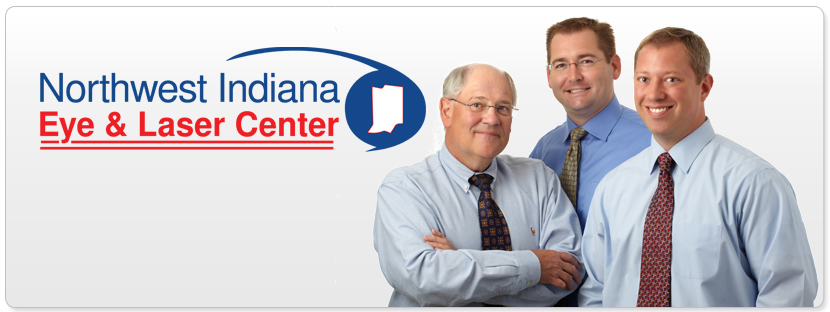Dog Bites on Childrens’ Eyelids
Eyelid lacerations in children can be caused by all types of accidental occurrences. Parents should be aware of the increased risks of eyelid lacerations caused by dog bites. According to researchers from Boston Childrens Hospital eyelid lacerations caused by dog bites are much more likely to cause damage to the delicate tear gland-the lacrimal gland-and the tear drainage structures. For this reason, if your child is accidentally bitten on the eyelid by a dog, be sure to tell the eye doctor so that a very careful examination and evaluation of the eyelid tissue and tear ducts can be performed. In about 1/3 of eyelid dog bites in children, we will find some damage that needs to be treated or repaired.
If you or someone you know has a child who is bitten on the eyelid or face by a dog please call Northwest Indiana Eye & Laser Center at 219-464-8223, or visit Northwest Indiana Eye & Laser Center, Google+ or facebook.com/nwindianaeyeandlaser.
Northwest Indiana Eye & Laser Center offices are located at 502 Marquette Street, Valparaiso, Indiana 46383 and 1001 South Edgewood Drive, Knox, Indiana 46354.
Monday, June 19, 2017
Sunday, June 11, 2017
Dry Eye & Overactive Bladder
Overactive Bladder
Treatment & Dry Eye Problems
What does having an
overactive bladder have to do with your eyes? Although you may be able to get to the toilet in time when you sense an
urge to urinate, unexpected frequent urination and nighttime urination can
disrupt your life. Overactive bladder (OAB),
also known as overactive bladder syndrome, is a condition where there is a
frequent feeling of needing to urinate to a degree that it negatively
affects a person's life. The frequent need to urinate may occur during the
day, at night, or both. Overactive bladder is estimated to occur in
7-27% of men and 9-43% of women. It becomes more common with age. Management of
overactive bladder often begins with behavioral strategies, such as fluid
schedules, adjusting the timing of urination and bladder-holding techniques
using your pelvic floor muscles. If these initial efforts don't help enough
with your overactive bladder symptoms your doctor may prescribe medications to
help. BUT, these overactive bladder medications can cause dry eye symptoms. Researchers
reported in the International Urogynecology
Journal on108 women suffering from OAB who were
started on oral medications to help with their symptoms. The researchers
carefully evaluated their tear film and symptoms over three months of starting
the medications. They found that there was a continuing worsening of the
sensation of eye dryness, grittiness and burning along with observable decrease
in the quality and quantity of the tear film. Thus, if you suffer from OAB
and your doctor prescribes oral medications to help you, please bring this to
our attention so we can offer help for your dry eyes before the symptoms become
too uncomfortable.
Overactive
bladder medications are known to cause or worsen dry eye problems. If you
suffer from OAB and start one of these medications please call Northwest Indiana Eye & Laser
Center at 219-464-8223, or visit Northwest Indiana Eye & Laser
Center, Google+ or facebook.com/nwindianaeyeandlaser. Northwest Indiana Eye & Laser Center offices are
located at 502 Marquette Street, Valparaiso, Indiana 46383 and 1001 South
Edgewood Drive, Knox, Indiana 46354.
Sunday, June 4, 2017
Increased Risk Factors for Cataract Surgery in Postmenopausal Women
According to a recent study reported in the journal Ophthalmology, smoking, diabetes and obesity may increase the risk of cataract surgery in postmenopausal women. The results of the “UK Million Women Study” included more than 1.3 million postmenopausal women who had not previously had cataract surgery. The women were followed for cataracts treated surgically and studies with powerful statistics to calculate the adjusted relative risks for cataract surgery in terms of use of hormonal therapies, reproductive history, lifestyle factors and diabetes treatment. Two percent of women had diabetes, which was the strongest risk factor for cataract surgery. Additionally, both past and current smoking was found to elevate the risk for cataract surgery. Obesity, with a Body Mass Index of 30 kg/m² or greater, was also found to have a small increase in risk of cataracts treated surgically.
If you or someone you know has been told they have a cataract or is concerned about cataract symptoms of cloudy vision, glare sensitivity or night driving problems and wishes to schedule a cataract & lens implant exam please call Northwest Indiana Eye & Laser Center-219-464-8223.
Subscribe to:
Posts (Atom)
